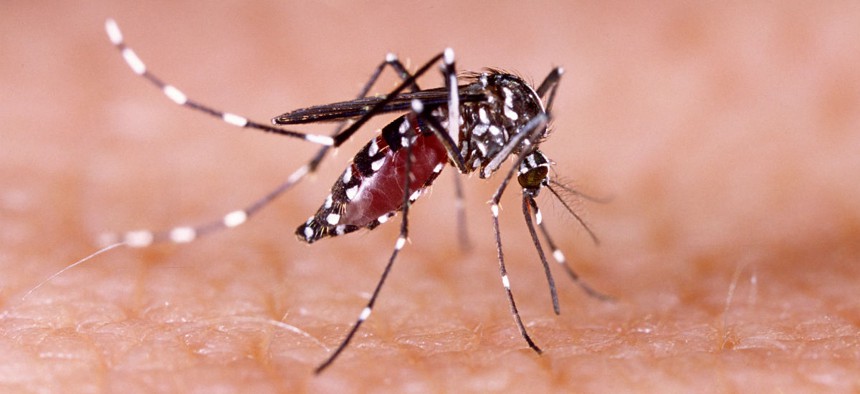
PongMoji/Shutterstock.com
The CDC Says 279 Pregnant U.S. Women Have Tested Positive for Zika
The CDC is now reporting that nearly 300 women in the U.S. and its territories have the virus.
The Centers for Disease Control and Prevention announced Friday that 279 pregnant women in the United States and its territories have tested positive for the Zika virus, which can cause the birth defect microcephaly.
At first glance, that figure looks like a frightening uptick in the number of cases—it’s more than double the number released just last week. But the agency was quick to note that the new numbers reflect updated reporting standards that encompass a greater pool of women.
Previously, the CDC only reported the number of pregnant women who tested positive for Zika and either showed symptoms or had Zika-related complications, a news release explains. Now, the agency is reporting all pregnant women who have “any laboratory evidence” of possible infection, no matter what. The CDC made the change after seeing reports of asymptomatic pregnant women who delivered children with birth defects. Researchers still haven’t nailed down women’s “absolute risk” of having microcephalic babies, a CDC official recently told PBS NewsHour.
Researchers have known for months that not every Zika patient shows symptoms; indeed, most infected people don’t. That’s in part what makes the virus so concerning. Before the virus emerged in South America in 2015 and began creeping northward, public-health-research agencies had not focused on it. In recent months, everything scientists have learned about Zika is “a bit scarier than we initially thought,” the CDC principal deputy director Anne Schuchat said last month. Researchers have established a causal link between Zika and microcephaly, as well as a link with the autoimmune disorder Guillain-Barré; they know it can be transmitted sexually; and there have been reports of brain and spinal-cord infections related to Zika. Its range is amplifying as well, even as outbreaks in some locations, such as Brazil, have quieted. The World Health Organization reported Friday that the Asian strain of Zika, which appeared in Brazil last year, is now in Africa.
U.S. public-health officials have focused most of their research and public outreach on the pregnancy complications. The new CDC numbers show 122 infected pregnant women in U.S. territories and 157 in the states. Those infections likely take several different forms, though CDC has not yet released all the details. In territories, researchers have seen lots of local transmission—particularly in Puerto Rico—where mosquitoes directly infect people with the virus. In the states, this has not happened; all cases are associated with travel to infected areas.
But no matter how limited, the potential for local transmission and outbreaks in the states is there. This report comes as public-health officials and the Obama administration are pushing Congress to give them more money to figure the virus out. Earlier this week, the Senate passed a compromise amendment that would allocate $1.1 billion to research efforts, less than the White House’s full $1.9 billion request. The House passed a bill that would allocate much less, $622 million, paid in part by leftover Ebola funds. The White House has threatened to veto any bill with that low of a dollar figure. As Washington continues to fight over the money, expect new reports like this one to affect the funding debate.
NEXT STORY: Shooting Reported Near the White House







